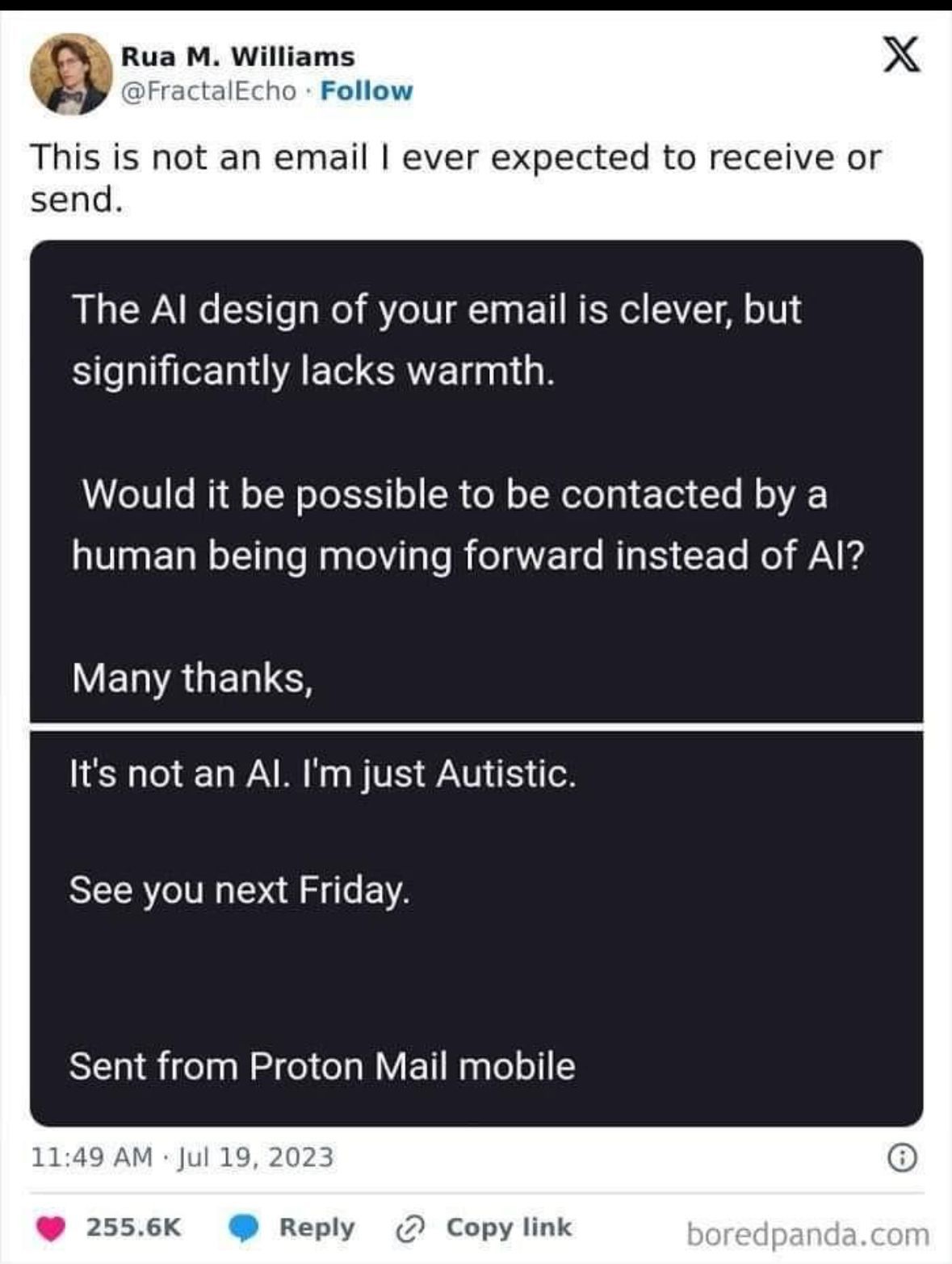this post was submitted on 26 Sep 2024
978 points (99.4% liked)
People Twitter
5300 readers
105 users here now
People tweeting stuff. We allow tweets from anyone.
RULES:
- Mark NSFW content.
- No doxxing people.
- Must be a tweet or similar
- No bullying or international politcs
- Be excellent to each other.
founded 1 year ago
MODERATORS
you are viewing a single comment's thread
view the rest of the comments
view the rest of the comments

Nah, it's scuzzy.
And when I'm trolling, I say "huh-tu-tu-puh" for HTTP.
To get Scuzzy you have to fundamentally modify SCSI and break a few grammatical rules
In English, "S" before a consonant typically retains its standard /s/ sound (as in "stop" or "snow"). Pronouncing "SCSI" as "Scuzzy" violates this by softening the second "S" into a /z/ sound before the consonant "Z," which doesn't follow the rule where "S" remains /s/ unless a voicing context (such as between two vowels) alters it.
English has rules governing when consonants are "soft" (like "S" becoming /z/) or "hard" (like "C" becoming /k/). In "SCSI," these letters maintain their distinct pronunciations, but when forced into "Scuzzy," the "C" becomes part of a hard /sk/ sound, and the second "S" is softened into /z/. These changes are not guided by typical English consonant-hardening rules, especially since "SCSI" does not include the contextual elements that normally trigger these shifts (e.g., vowel placement following "C" in certain cases).
You also have to add whole new vowels like "u" and "y"
The C is hard because the second word is "Computer." The O in "Computer" becomes a "u" sound because "scossy" sounds odd.
Irrelevant, acronyms and initialisms don't depend on the underlying words they stand for beyond the first letter of each word. You can't use the word underlying C or any of the other letters for grammatical justification or pronunciation.
Each letter must stand on its own and be governed by pronunciation rules independently of its underlying word, if it cannot form a sensible pronounceable word (Like FBI, CIA, SQL, SCSI) on its own it's an initialism. If it can (Like NASA) then it's an acronym.
Nah, there are no such rules, like anything else, initialisms are defined by speakers of the language, and that's what industry professionals seem to use most often.
Lol ok, if you want to change to that set of rules, I am an industry professional. Fairly deep into my IT career, and I will absolutely get on to any of my people if I see "Scuzzy" (Not that that particular one will ever come up again, fairly out of date lmao) or "Sequel" or any of that other bull
Maybe it's a regional thing, or maybe you're just a hothead, hard to tell.
Either way, in my region, "scuzzy" and "sequel" are the dominant pronunciations for SCSI and SQL in my field.